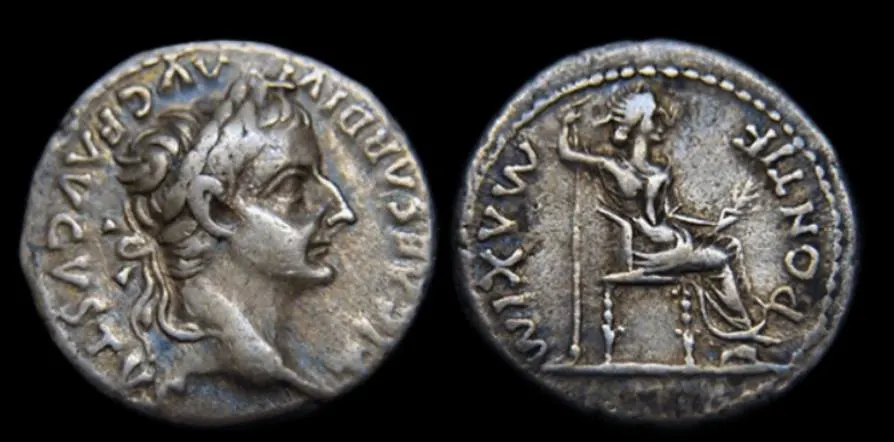His mother got married to the man who started the Roman Empire and he would end up reluctantly taking over this role as well, effectively becoming the second Roman Emperor.
In this post, you’ll discover the ultimate list of facts about Tiberius, a cold ruler who really preferred to be left alone.
1. Tiberius was born in Rome in 42 B.C.
Tiberius was born as “Tiberius Claudius Nero” on November 16 of the year 42 B.C., right in the heart of what was then the Roman Republic. His father was a politician named “Tiberius Claudius Nero” and he and one brother named Nero Claudius Drusus who was born in 38 B.C.
His mother, on the other hand, was Livia Drusilla, who divorced his father in the year 39 B.C. while pregnant with his brother.
It’s fair to conclude that he was born into a very powerful family which would become the first ruling dynasty of the Roman Empire referred to as the Julio-Claudian Dynasty.
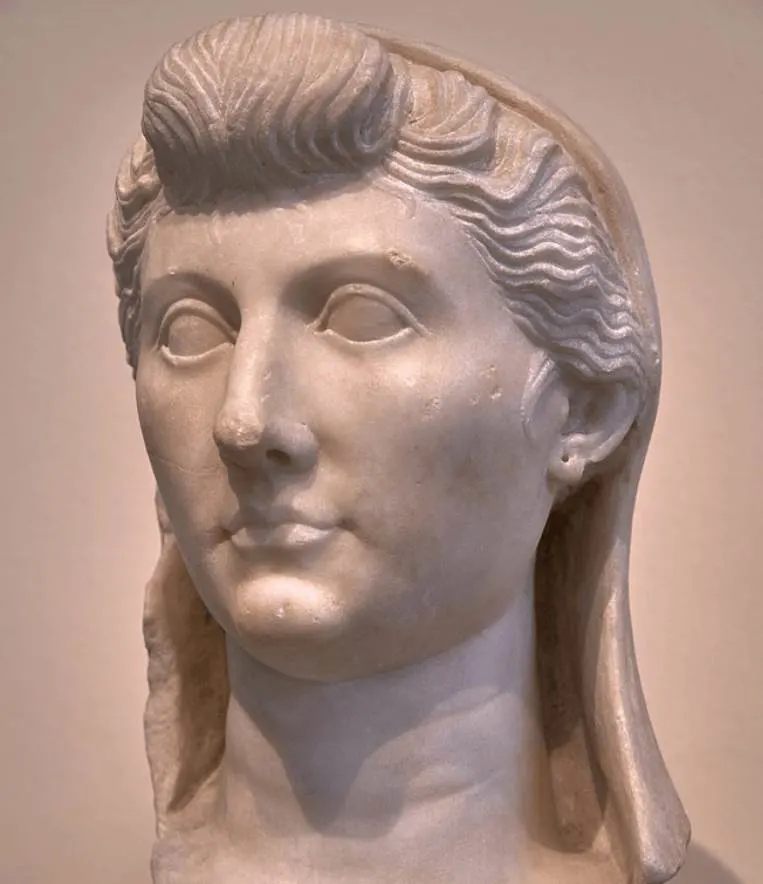
2. Emperor Augustus became his stepfather
The reason that his mother divorced his father was to marry the man who would become the first Roman Emperor, Gaius Julius Caesar Octavianus, better known as Augustus.
This effectively made Augustus his stepfather, a fact that would result in Tiberius becoming his heir to the position of Princeps, a position he created and which meant “First Citizen.”
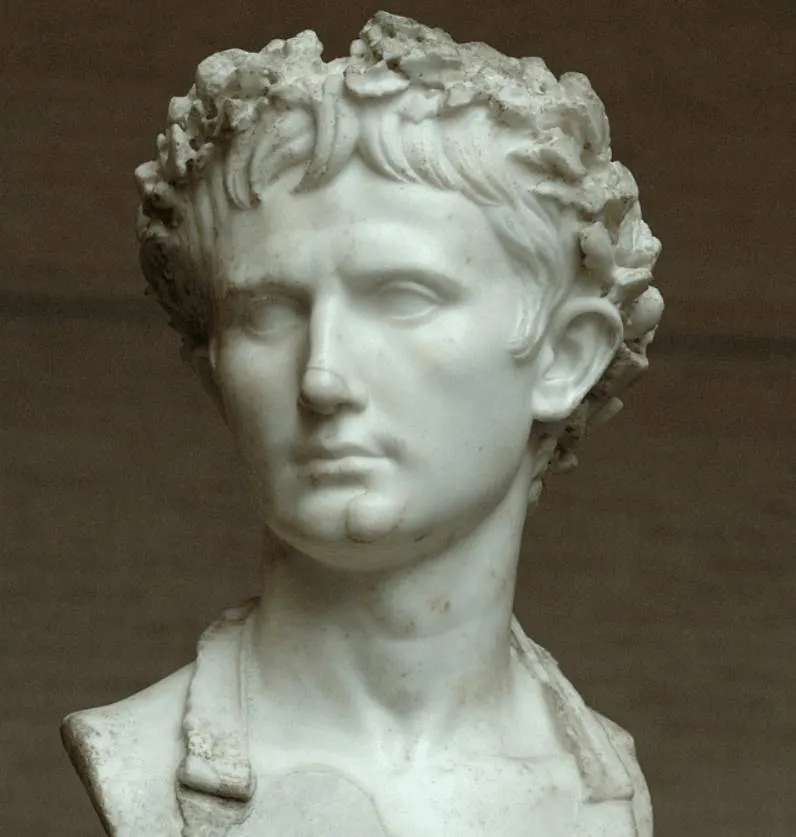
3. His mother produced an infamous bloodline
Apart from being married to the first Emperor of the Roman Empire, Livia Drusilla was also directly related to multiple future emperors as she was the:
- Mother of Emperor Tiberius.
- The paternal grandmother of Emperor Claudius.
- The paternal great-grandmother of Emperor Caligula.
- The maternal great-great-grandmother of Emperor Nero.
She ended up being deified by Claudius, earning her the title of Augusta. This wasn’t just because she was the wife of Augustus but also because she was his lifelong adviser as well.
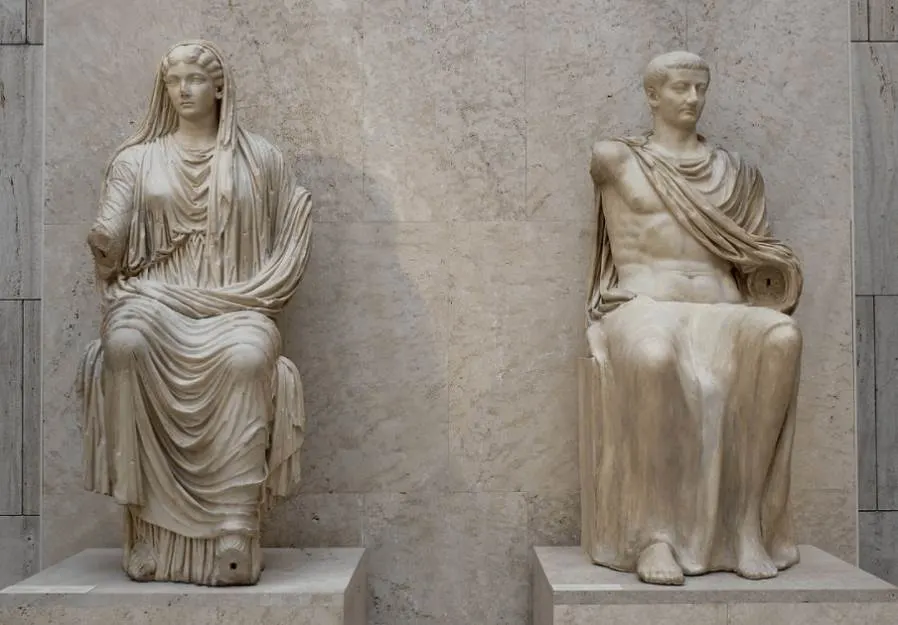
4. Tiberius got into politics at an early age

As the stepson of the most powerful man in the Roman Empire, he had everything needed to succeed in politics. Therefore, he entered politics at the urge of Augustus himself and was given the position of quaestor at the age of 17.
To emphasize that Augustus meant business, he was instantly granted the right to become praetor and consul 5 years earlier than the required legal age.
Apart from serving in his position as a politician, he also moved up the ranks in the military, leading a campaign in Armenia in an attempt to set up a client state near the Roman-Parthian border.
5. He married the daughter of a famous Roman architect
Tiberius married Vipsania Agrippina in the year 19 B.C., the daughter of one of Augustus’ best friends and an official architect named Marcus Vipsanius Agrippa.
This man’s name can still be seen on one of his most famous achievements, the Pantheon, a Roman Temple that was turned into a Catholic church and which still stands in the center of Rome today!
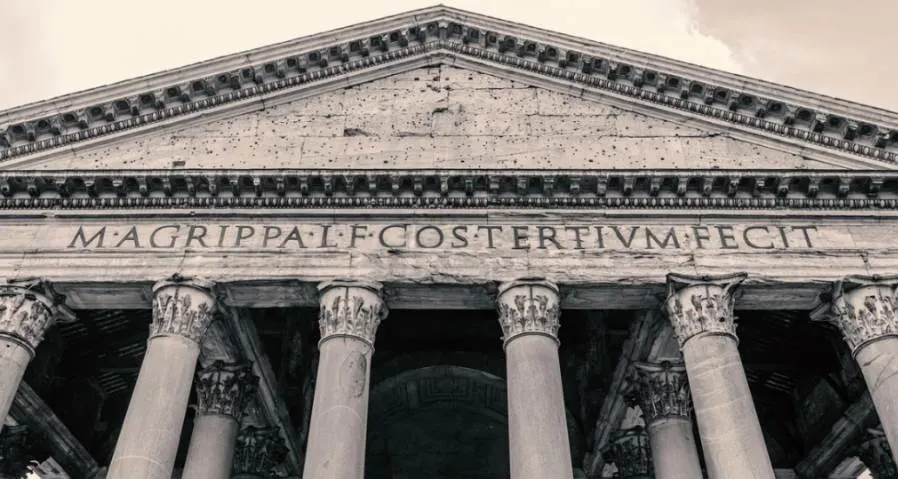
6. Did his love life make him withdraw from politics in 6 B.C.?
One of the most remarkable facts about Tiberius is that Augustus forced him to divorce his wife and marry his very own daughter, Julia the Elder. The reason for this is that Marcus Agrippa passed away in 12 B.C. and she was his wife.
Tiberius reluctantly agreed to the deal and married his own stepsister to please Emperor Augustus, something that didn’t work out too well.
Tired of his second wife and still secretly in love with his first wife, Tiberius announced that he would withdraw from politics altogether and retire to Rhodes in 6 B.C., a Greek island, as he was fascinated with Greek culture.
This happened at a moment when he was about to be given command of the entire east of the Roman Empire and become the second-most powerful man in Rome.
Historian Tacitus referred to this episode as “Tiberius’ intima causa,” meaning his love life got the better hand over his political career.
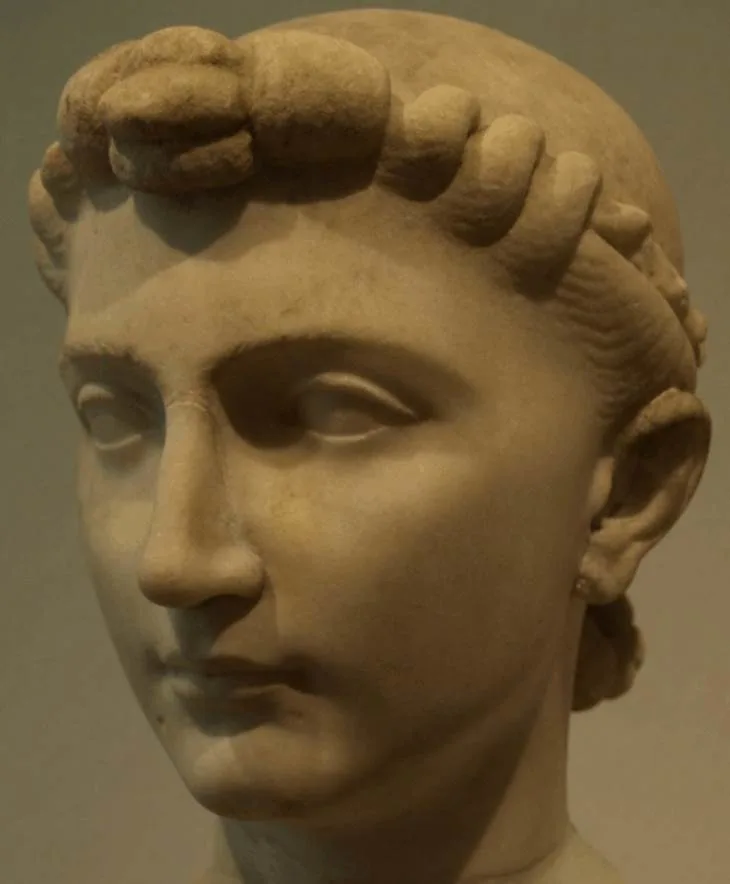
7. He was given serious power in the year 4 A.D.
Augustus wasn’t too happy with Tiberius’ decision. It didn’t just make him look like a fool, but also disturbed an important issue about his succession. He had two grandsons which were both too young to take over if needed, so Tiberius was virtually his only hope.
When Tiberius got tired of Rhodes, he was allowed to come back and was adopted as full son and heir of Augustus in the year 4 A.D.
8. Tiberius ultimately became the sole heir of Augustus in 14 A.D.
After a successful campaign in Germania between 10 and 12 A.D., he was given a triumph and officially awarded the title of “co-Princeps.”
2 years later in the year 14 A.D., Augustus died, just a month before his 76th birthday. Tiberius, being awarded the title of co-Princeps two years earlier, was instantly declared Emperor, resulting in a smooth transition!
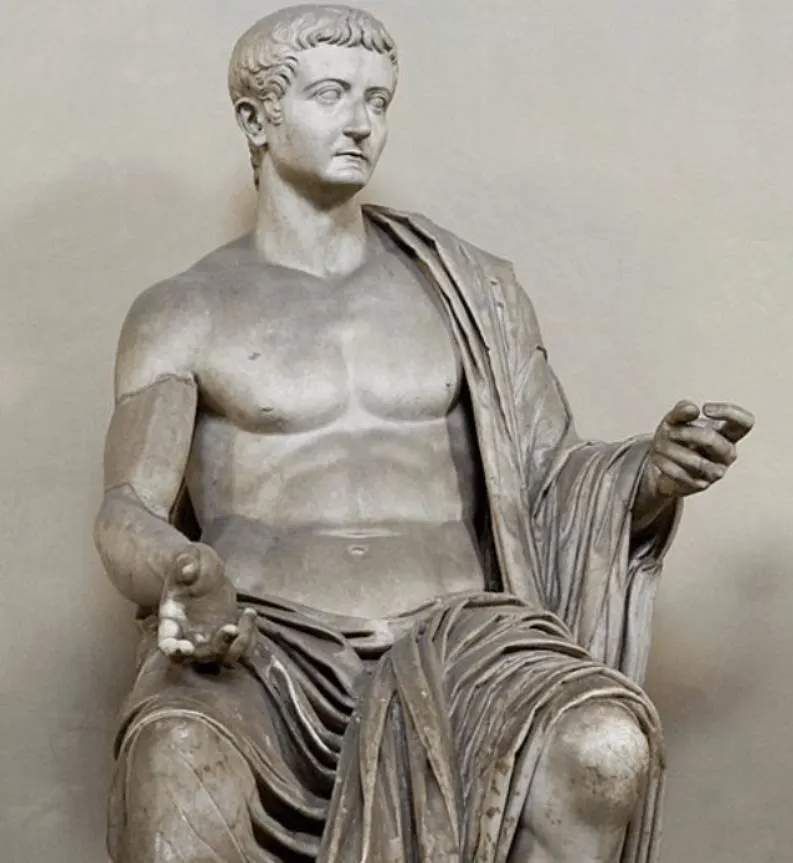
9. He stunned the Senate by only reluctantly accepting his powerful position
Tiberius was declared Emperor on 18 September 14 A.D. by the Senate and awarded the titles of Augustus and Pater Patriae (father of the fatherland), and given the Civic Crown as a token of his power.
According to historian Suetonius, Tiberius initially refused to accept both the titles and the crown and literally played dumb. It’s believed that he positioned himself in this way because of fear. After all, becoming the most powerful man in the empire also means you instantly get a lot of enemies.
Did he play the role of the humble man who is forced to become Emperor?
10. Tiberius left Rome forever in 26 A.D.
Even though he ended up reluctantly accepting his role as Emperor, it instantly became clear that he didn’t really want to be burdened with this position.
He considered the Senate no more than “men fit to be slaves” simply waiting for his commands, and would rather have it work without his interference.
After more than a decade of being in a position he clearly didn’t want, he made the drastic decision of moving to the island of Capri in 26 A.D., just off the coast of Campania in the Gulf of Naples, where he owned an imperial villa.
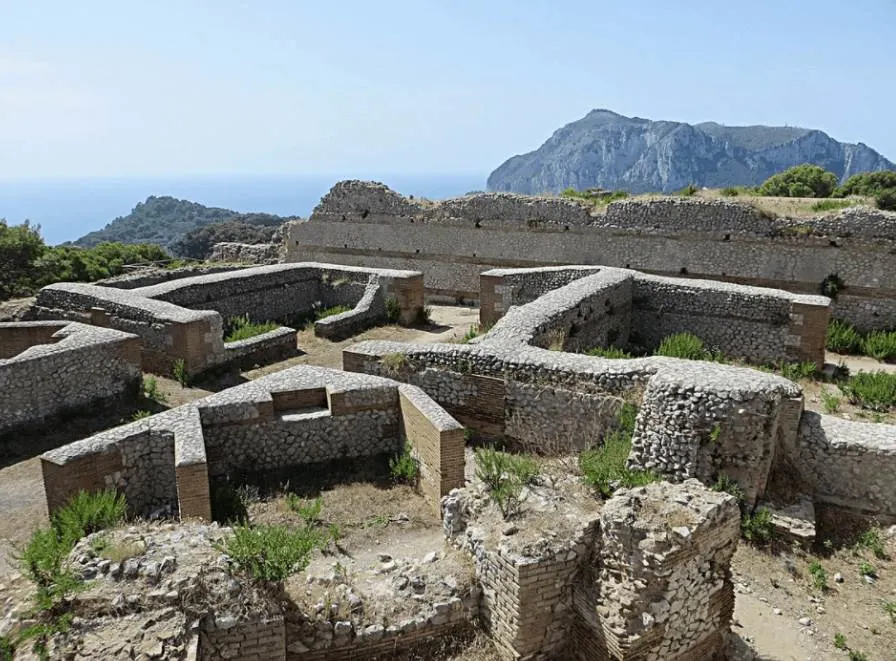
11. He left the command in Rome to one of his loyal friends
Tiberius left the command in Rome to one of his best friends who had served the family for over 20 years named Lucius Aelius Sejanus. he was given power over the Praetorian Guard, an elite group of between 5,000 and 10,000 soldiers whose sole task was to protect the Emperor.
One of the most peculiar facts about Tiberius is that he never would he have expected that Sejanus would end up backstabbing him just a few years later.
12. Sejanus attempted to seize power but failed miserably
Being given so much power in Rome wasn’t enough for Sejanus, he wanted to become Emperor. he had been planting the seeds for his attempted coup for many years, going back to the year 23 A.D. when he presumably set up Tiberius’ son in a plot with his own wife Livilla.
One of the most intriguing facts about Tiberius is that things went really downhill with Tiberius after his son died, and Sejanus’ plot would eventually culminate in an attempted coup in the year 31 A.D.
Sejanus had been organizing trials to remove people who were standing in his way. The plot was eventually uncovered and Tiberius sent a letter to the Senate ordering the instant execution of Sejanus. This happened less than a week later as Sejanus was strangled together with a large number of co-conspirators.
13. Perhaps Tiberius was more lenient than initially thought
What happened afterward remains unclear, but trials were certainly organized to bring all the conspirators to justice.
While most historians describe Tiberius’ actions as those of a ruthless and vengeful tyrant, historian Edward Togo Salmon refers to the fact that only 52 trials for treason were held during Tiberius’ reign, and nearly half of those indicted were released.
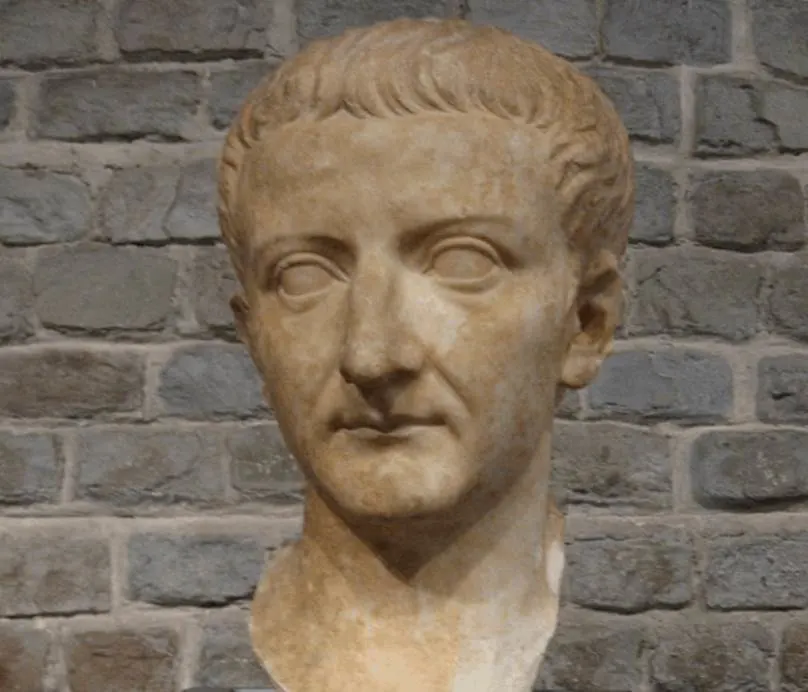
14. An anecdote shows the level of Paranoia Tiberius suffered in Capri
While staying on the island of Capri, it’s clear that Tiberius suffered from intense paranoia. This is reflected in an anecdote that happened a few years after he arrived there.
When a humble fisherman startled him and offered him a large fish he had caught, Tiberius was so shocked that he ordered to have the fish rubbed in his face as punishment.
The man was so happy that he didn’t offer him the huge crab he had caught instead. Unfortunately, Tiberius overheard his thankful prayers and instantly ordered the man’s face to be ripped apart by that immense crab as well.
The man must have wished he stayed quiet, don’t you think?
15. Did Caligula have a stake in Tiberius’ death?
One of the most interesting facts about Tiberius is that he took Caligula, who was the son of famous Roman general Germanicus. With his own son dead, only his grandson Tiberius Gemellus and Caligula were possible candidates for his succession.
He tried to make Caligula a Quaestor at the end of his life and this was seen as a sign that he favored him, even though he never officially declared him as his heir.
Tiberius died in Misenum on March 16 of the year 37 A.D., and even though he was already 77 at the time, his death is surrounded by mystery. Everybody thought he had died, and while Caligula was being congratulated for being the new Emperor, it appeared Tiberius was still alive.
According to Tacitus, the men present feared for their lives and ended up smothering Tiberius with his pillow.
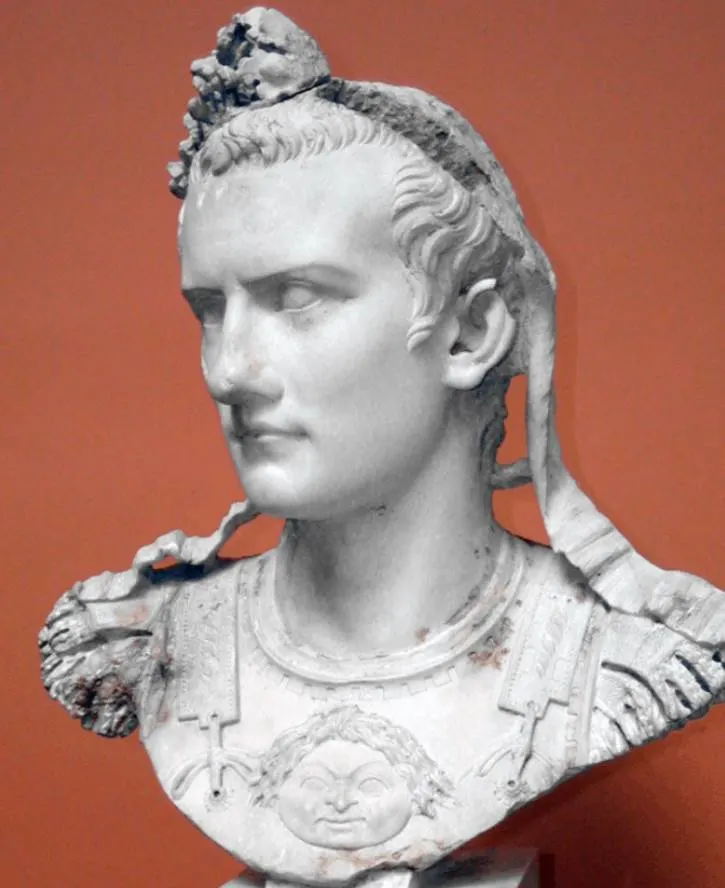
16. The Roman Empire was extremely rich when he died
All remaining sources of Tiberius’ rule paint him as a somber and reluctant ruler who never really wanted to become Emperor and did just enough to pretend he was ruling over the Empire.
He was, however, an excellent bureaucrat who didn’t indulge in massive building projects and expensive wars. Because of this, the Roman Empire owned about 3 billion sesterces the moment he died!
In that sense, he laid the foundation for a stronger Roman Empire and held the status quo established under Augustus. After all, this wasn’t an easy task considering he was only the second Roman Emperor!
17. Jesus Christ was crucified during Tiberius’ reign
Perhaps one of the most important facts about Tiberius is that he ruled over the Roman Empire during the life of Jesus Christ, who would end up being crucified while he was in command.
Tiberius is mentioned by name in the Bible as well in Luke 3:1, referring to John the Baptist entering his public ministry.
